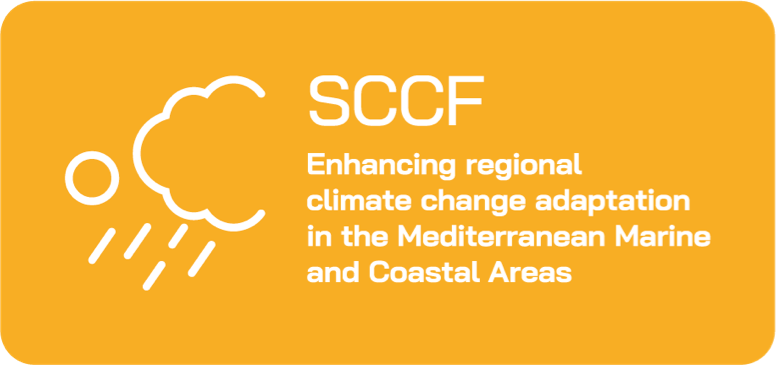GEF Focal Areas
Climate Change
International Waters
Rationale
CONTACTS
UNEP/MAP
Mr. Mohamad Kayyal, MedProgramme Management Officer
E-mail: mohamad.kayyal@un.org
PAP/RAC
Ms. Daria Povh, Director
Email: daria.povh@paprac.org
Plan Bleu
Mr. Antoine Lafitte, Deputy Director
E-mail: alafitte@planbleu.org
GWP-Med
Mr. Dimitris Faloutsos, Senior Programme Officer
Email: dimitris@gwpmed.org
The Mediterranean Sea has been identified as one of the main climate change global hotspots. The Intergovernmental Panel on Climate Change (IPCC)’s Fifth Assessment Report (2013-2014) considers the Region as “highly vulnerable to climate change”, underlining that it “will suffer multiple stresses and systemic failures due to climate changes”. The negative impacts of climate change on coastal and marine ecosystems, and on coastal livelihoods as well as development processes exacerbate those related to socio-economic pressures in the Mediterranean region. The combined effects of climate change and unsustainable practices result in biodiversity and economic losses for the region. Although some measurable progress has been made to enhance the ability of the countries in the region to cooperate and address the problems associated with the impacts of climate change, much more is needed.
The SCCF Project contributes to the overarching goal of Component 2 of the MedProgramme to enhance sustainability and climate resilience in the coastal zone. The specific objective of the SCCF Project is to enhance the capacities of the participating Countries in the Mediterranean region to adapt to climate change with a view to influencing wider development processes in the region. Technical assistance in this project focuses on two main lines of action: mainstreaming climate change adaptation strategies in coastal plans and facilitating access to climate financing to scale up adaptation measures in the region. Activities of the SCCF Project are fully integrated with those of Child Project 2.1 of the MedProgramme “Mediterranean Coastal Zones Climate Resilience Water Security and Habitat Protection”.

Components and Outcomes
Stakeholder engagement, and enhanced capacity building and cooperation: Provide training to technical experts and decision makers from the six project countries on climate change adaptation solutions for coastal areas.
Development of best practices for enhanced sustainability and climate resilience in the coastal zone: Develop two priority coastal area reports on the main legal, policy and institutional barriers and opportunities for implementing adaptation solutions.
Access to existing and emerging finance mechanisms relevant to climate change adaptation, including international and domestic instruments: Develop methodological guidelines on preparing a finance plan for climate change adaptation.
Knowledge, management, project coordination and influencing: A regional meeting to share information and knowledge on the findings and outputs of the adaptation planning processes.
Involved Countries











